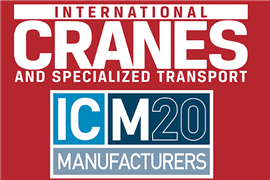European cartel fines “corrected”
12 October 2010
Some of the fines imposed by the European Commission for a price-fixing and market-sharing cartel have been corrected following errors in the calculation of the fines.
Originally, fines worth € 518 million were imposed on 17 producers of steel for pre-stressed concrete (Construction Europe, July-August 2010). On September 30, the Commission corrected the fines to € 458,4 million.
The companies affected by the decision are ArcelorMittal, Emesa/Galycas/ArcelorMittal (España), WDI/Pampus and Rautaruukki/Ovako.
The biggest fine still goes to ArcelorMittal, though it has been reduced to € 230,4 million, and the penalty for Emesa/Galycas/ArcelorMittal (España) is reduced to € 36,7 million.
The fine for WDI/Pampus is now € 46,5 million, having been € 56 million, and the new fine for Rautaruukki/Ovako is now € 4,3 million.
In setting the fines, the Commission took into account the sales of the companies involved in the market concerned in the last year before the end of the cartel - 2001. It also considered the "very serious nature of the infringement", the geographic scope of the cartel and the fact that it lasted for 18 years.
The Commission's decision was that the producers violated the European Union's ban on cartels and restrictive business practices. The cartel operated between January 1984 and September 2002 in all the countries that then formed the EU except the UK, Ireland and Greece. It also affected Norway. It stopped when DWK/Saarstahl revealed its existence under the EU Leniency Programme introduced in 2002, and the Commission carried out surprise inspections at the premises of the suspected members.
The Commission said it had evidence of over 550 cartel meetings, with companies usually meeting in the margin of official trade meetings in hotels all over Europe.
In July, Commission vice-president in charge of competition Joaquín Almunia said, "The Commission will have no sympathy for cartelists - recidivists will be fined more and inability-to-pay claims will be accepted only when it is clear the fine would send a company into bankruptcy, which is rare even in the current difficult times."
STAY CONNECTED


Receive the information you need when you need it through our world-leading magazines, newsletters and daily briefings.
CONNECT WITH THE TEAM










